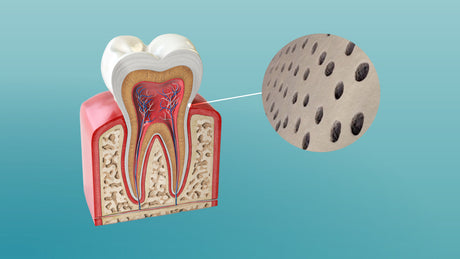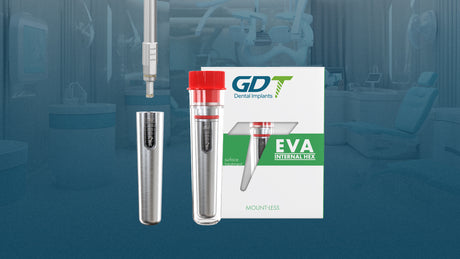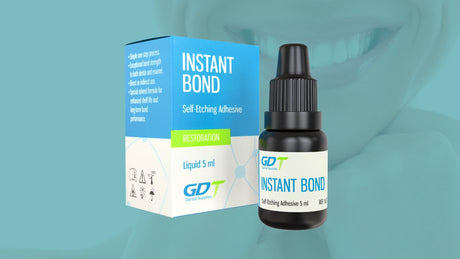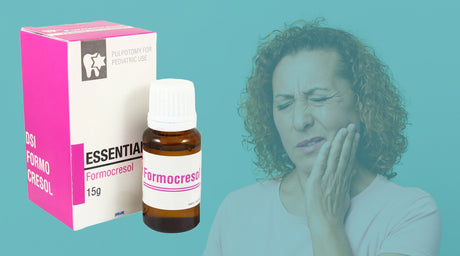Dental disposables are critical to maintaining hygiene and efficiency in any dental practice. These single-use items help prevent cross-contamination and ensure that each patient is treated in a sterile environment. In this article, we'll explore the various types of dental disposables, their uses, and how they contribute to a safe and effective dental practice.
Importance of Dental Disposables
In the fast-paced environment of a dental clinic, maintaining hygiene standards is paramount. Dental disposables offer a practical solution by eliminating the need for sterilization and reducing the risk of infections. Their single-use nature ensures that each item is used on only one patient, thereby minimizing the chances of cross-contamination.
Key Types of Dental Disposables
There are numerous dental disposables available, each serving a specific function in maintaining hygiene and supporting efficient procedures. Let’s explore the most essential ones:
- Gloves
- Purpose: Protect both dental professionals and patients from exposure to infections.
- Types Available: Latex, nitrile, and vinyl gloves cater to different preferences and potential allergies. Nitrile gloves, for instance, are a great alternative for those allergic to latex.
- Best Practices: Gloves should be changed between patients and disposed of properly to maintain hygiene.
- Face Masks
- Purpose: Shield dental professionals from airborne particles and pathogens, ensuring safety during procedures.
- Varieties: Options include 3-ply masks, N95 masks, and surgical masks, each providing varying levels of protection.
- Application: Essential for all dental procedures to minimize the risk of respiratory contamination.
- Dental Bibs and Tray Covers
- Purpose: Protect patients from splatter during procedures and keep instruments on trays sterile.
- Materials: Dental bibs are often made from absorbent materials with a waterproof backing to prevent fluids from seeping through. Tray covers are usually made from paper or plastic.
- Usage Tips: Ensure that bibs and covers are replaced after every patient to uphold hygiene standards.
- Needles and Syringes
- Purpose: Used for administering local anesthesia and other medications.
- Safety Features: Many disposable needles now come with safety mechanisms to prevent accidental needlestick injuries.
- Disposal: Always dispose of used needles in a designated sharps container to comply with safety regulations.
- Saliva Ejectors and Suction Tips
- Purpose: Keep the oral cavity dry during procedures by removing excess saliva and other fluids.
- Varieties: Disposable saliva ejectors are available in different sizes and flexibility levels to cater to various patient needs.
- Maintenance: Proper disposal after each use is crucial to prevent cross-contamination.
- Prophy Angles and Cups
- Purpose: Used during dental cleanings to polish teeth and remove plaque.
- Options: Disposable prophy angles come in different configurations, such as right-angle or contra-angle, and are designed for single-use.
- Efficiency: These disposables save time by eliminating the need for sterilization between patients.
- Sterilization Pouches and Wraps
- Purpose: Although some tools need to be sterilized, these pouches and wraps keep sterilized instruments secure until their next use.
- Materials: Typically made of durable, heat-sealable materials that allow steam or gas penetration during the sterilization process.
- Usage: Ensure proper sealing and labeling before placing items in an autoclave.
- Impression Trays
- Purpose: Hold impression material to capture accurate dental impressions for crowns, bridges, and dentures.
- Designs: Available in various sizes and materials, such as plastic or metal, though disposable plastic trays are more common for hygiene purposes.
- Application: Single-use trays are preferred to ensure patient-specific hygiene.
Benefits of Using Disposables in Dental Practices
- Increased Hygiene: By using disposables, dental practices can significantly reduce the risk of cross-contamination and infection, as each item is discarded after use.
- Time Efficiency: Disposables eliminate the need for lengthy sterilization processes, allowing more time for patient care.
- Cost-Effectiveness: While disposables may seem more expensive initially, they reduce the costs associated with maintaining sterilization equipment and procedures, leading to long-term savings.
- Regulatory Compliance: Using disposables ensures that practices meet hygiene regulations more easily, reducing the risk of penalties and maintaining a safe environment for both patients and staff.
How to Choose the Right Disposables for Your Practice
Selecting the right disposables depends on your practice's specific needs. Here are a few tips to help you choose:
- Consider Allergies: If your patients or staff have allergies, opt for hypoallergenic options like nitrile gloves instead of latex.
- Assess Durability: For procedures requiring more durability, select disposables that offer enhanced protection and performance, such as thicker gloves or reinforced face masks.
- Factor in Cost: While maintaining quality is essential, consider bulk purchasing to reduce costs without compromising on the items' effectiveness.
Optimizing the Use of Disposables in Your Practice
- Inventory Management: Track your disposable supplies regularly to avoid running out of essential items. Maintaining a steady supply ensures your practice operates smoothly.
- Staff Training: Proper training is crucial in ensuring that all disposables are used and disposed of correctly. This minimizes waste and maintains hygiene.
- Disposal Compliance: Follow local regulations for medical waste disposal to ensure your practice remains compliant and environmentally responsible.
Conclusion
Dental disposables are essential for maintaining a hygienic and efficient practice. By choosing the right disposables and using them effectively, dental professionals can provide high-quality care while minimizing risks. From gloves and masks to impression trays and prophy angles, investing in the right disposables ensures that your practice operates smoothly and safely.
Frequent Asked Questions
- What are the most important dental disposables to have in a clinic?
Essential disposables include gloves, face masks, dental bibs, tray covers, needles, syringes, and saliva ejectors. These items are critical for maintaining hygiene and preventing cross-contamination.
- How do I choose the right type of disposable gloves for my practice?
Consider factors such as material (latex, nitrile, or vinyl), the tasks performed, and any potential allergies. Nitrile gloves are a good option for those with latex allergies.
- Can saliva management pads be used with suction devices, or are they a standalone product?
Saliva management pads are typically used alone but can be combined with suction devices for better moisture control. Pads absorb saliva from soft tissues like the cheek, while suction handles larger fluid volumes. This combination is especially useful in longer procedures, ensuring a dry working area and better visibility.
- How should I dispose of used dental needles and syringes?
Used needles and syringes should be disposed of in designated sharps containers to comply with safety regulations and prevent injury or contamination.














